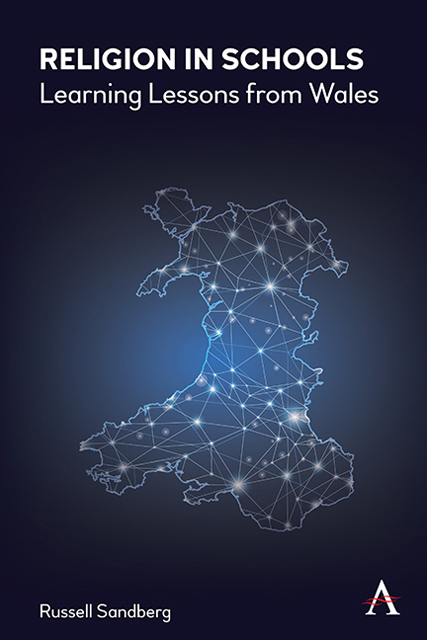Part Two - The New Welsh Law On Religion, Values And Ethics
Published online by Cambridge University Press: 09 December 2022
Summary
In 1999, in the first elections to what was then the Welsh Assembly, the Labour Party won twenty-eight seats and entered into a coalition with the Liberal Democrats who had six seats. One of those six seats was held by Kirsty Williams, who would go on to become the leader of the Welsh Liberal Democrats from 2008 to 2016 with a reputation for championing health and education causes, the key areas in which powers had been devolved to the Welsh Assembly. In the fifth election in 2016, Labour won twenty-nine seats and for the first time since 1999, they again entered into Government with the Liberal Democrats. However, by then the Liberal Democrats only had one seat, which was held by Kirsty Williams. Williams entered the Government as Education Secretary. She then spearheaded the new Curriculum for Wales, building upon the Donaldson Report that had been published in February 2015 and was responsible for the Curriculum and Assessment (Wales) Act 2021, which provides the legislative framework for the new curriculum, including its new approach to religious education. In October 2020, during the passage of the Bill through the Senedd, Williams announced that she would not seek re-election at the 2021 election for what had by now been re-named the Welsh Senedd. In that election, which took place after the Curriculum and Assessment (Wales) Act 2021 had received royal assent, Labour won 30 seats and decided to govern alone. Jeremy Miles was appointed as the new Education Secretary responsible for the implementation of the new curriculum. Although this work is on-going with the implementation of the new curriculum for Wales, the stance of the curriculum and its approach to teaching religion remains very much the legacy of the lone Liberal Democrat.
This part provides a chronological account of how the teaching of religion has been transformed in Wales. It examines in detail how the new Welsh curriculum will radically depart from the status quo in terms of Religious Education, by renaming it as Religion, Values and Ethics (RVE) and making it a mandatory curriculum requirement, which will fall under the Humanities area of learning with no parental right to opt out in schools without a religious character.
- Type
- Chapter
- Information
- Religion in SchoolsLearning Lessons from Wales, pp. 51 - 52Publisher: Anthem PressPrint publication year: 2022



